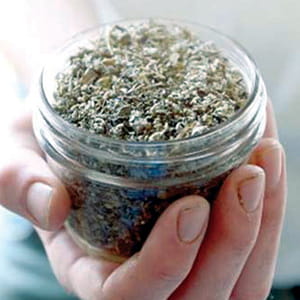Severe illness related to tainted synthetic cannabinoids
Since March 2018, over 200 patients have presented to emergency departments across nine different states with signs of unexplained but significant bleeding. To date, four of these patients have died. There is a common denominator among these patients, however – the use of rat-poison-infused synthetic cannabinoids.
Synthetic cannabinoids, designed to mimic marijuana effects by acting on cannabinoid receptors in the brain, are man-made chemicals that are often sprayed onto dried plant material and smoked. While synthetic cannabinoids may functionally produce a marijuana-like high, they are often different structurally, posing unknown threats to their users.
The unregulated manufacture of these illicit compounds means that the constituents of the end product are unknown and may easily be adulterated with other substances. In the exposure cases that first began showing up in the Chicago area, the synthetic cannabinoids contained brodifacoum, a long-acting anticoagulant previously used in mice and rat poison products.
Hundreds of times more potent than warfarin, bleeding induced by brodifacoum occurs as a result of interference with the formation of vitamin-K-dependent clotting factors. Warfarin is a blood thinner used in humans to prevent clotting of blood. Brodifacoum has been used to induce bleeding in mice and rats to eliminate them as pests. Both warfarin and brodifacoum treatment is the same: administration of vitamin K.
Treatment with vitamin K as a result of exposure to brodifacoum takes much longer than warfarin, however, owing to its highly lipophilic nature. This lipophilicity enables it to permeate tissue where deposits of drug may be stored. Drug from these stores can be released back into the body for as long as nine months. Strict adherence to a prolonged treatment regimen with vitamin K is critical to prevent the risk of bleeding and potential lethality.
On the street, synthetic cannabinoids are often called synthetic marijuana, K2 or Spice but may also be packaged under numerous other brand names. Unlike marijuana, synthetic cannabinoids are typically not detected in drug screens, leading many users to view them as smart alternatives to marijuana. Synthetic cannabinoids have been linked with serious and perplexing side effects in users, such as seizures, strokes and heart attacks. Additionally, synthetic cannabinoids have been found to be more potent (and therefore addictive) than marijuana, a property many users learn the hard way.
While investigators suspect that brodifacoum was intentionally added to the synthetic cannabinoid products, no one knows if the intent was malicious or strategic. Users believe that brodifacoum may help prolong the high by interfering with metabolism of the cannabinoid.
The Centers for Disease Control (CDC) has issued a health advisory to address the recent poisonings with brodifacoum. In it, the CDC recommends that the use of synthetic cannabinoids be considered and investigated in any patient exhibiting unexplained bleeding. Tests designed to measure potential for bleeding should be conducted in any patient who uses synthetic cannabinoids, regardless of whether or not there is evidence of bleeding. Additionally, healthcare workers should make a greater effort to educate the general public about the harm, known and unknown, associated with synthetic cannabinoid use.
If you have questions about synthetic cannabinoids or any other substance, contact the Cincinnati Drug and Poison Information Center at 1-800-222-1222.
-- Annie Ulyshen, PharmD candidate, and Jan Scaglione, MT, PharmD, DABAT
References
Anderson, S.L., Kattappuram, R.S., Marrs, J.C., Joseph, N.M. (2017). Intentional brodifacoum ingestion. The American Journal of Medicine, 130(1). doi:10.1016/j.amjmed.2016.08.010.
Powell, D. (April 2018). The spice of death: The science behind tainted “Synthetic Marijuana”. Scientific American.
Rajasekaran, M., Brents, L.K., Franks, L.N., Moran & Prather, P.L. (2013). Human metabolites of synthetic cannabinoids JWH-018 and JWH-073 bind with high affinity and act as potent agonists at cannabinoid type-2 receptors. Toxicol Appl Pharmacol, 269(2), 100-108.




